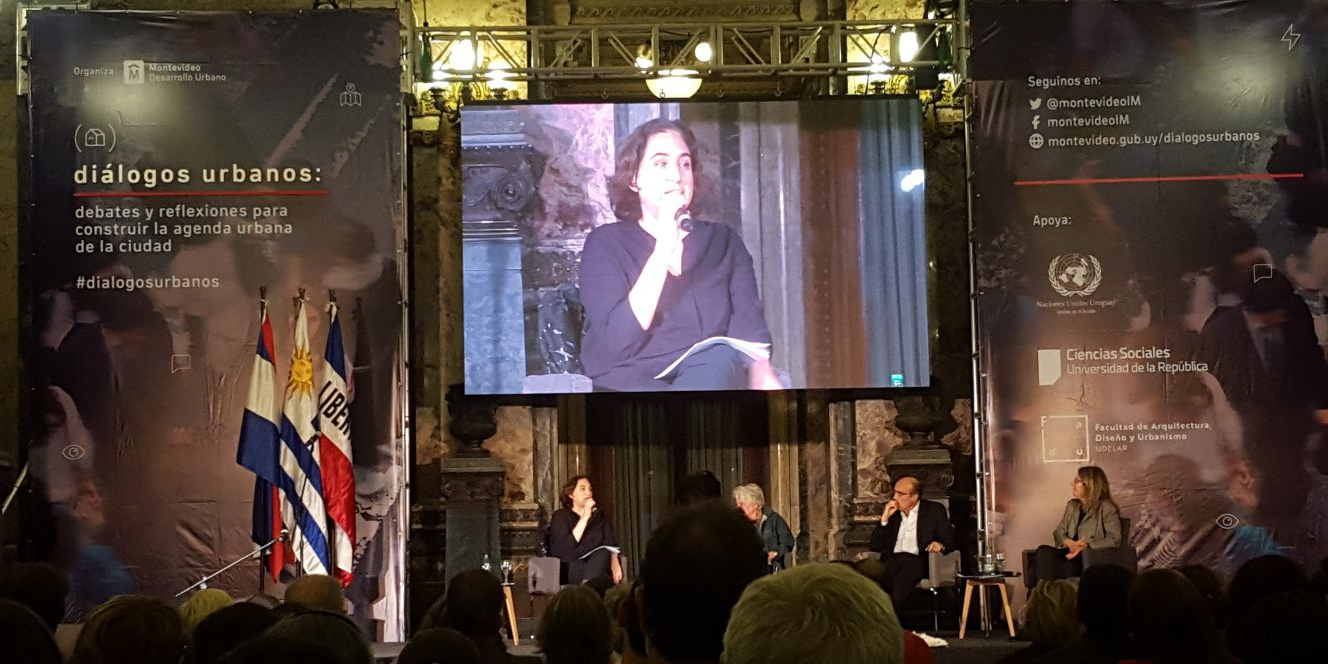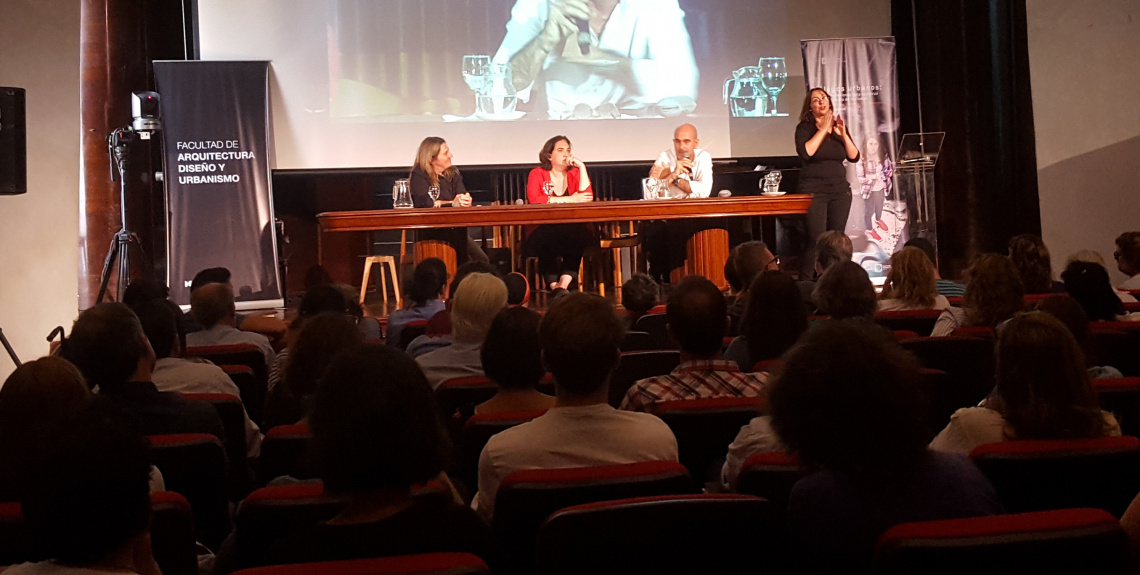From 16 to 18 April 2018, and on the occasion of the 70th anniversary of the Universal Declaration of Human Rights, the city of Montevideo organized the seminar “Diálogos Urbanos: Debates y Reflexiones para construir la agenda urbana de la ciudad” (Urban Dialogues: Dialogues and Reflections to build the city’s urban agenda). Our Committee attended this event in order to learn more about the initiatives of the municipality and the debates taking place in it in regards to human rights and the right to the city
Gentrification, human rights, “extractivism”, urban resistances, emerging voices… Through a comprehensive three-days seminar, the city of Montevideo decided to open a unique space for dialogue that addressed the current and future challenges of Uruguay’s capital.
As remarked by Silvana Pissano, Montevideo’s Director of Urban Development, “Bringing forward a rights-based perspective is the best way to take the necessary steps so that people can have access to the city and, above all, be able to stay in it”.
Altogether with the Vice-President of the Republic of Uruguay, Lucia Topolansky, as well as its Housing Minister, Eneida Leon, the Mayor of Barcelona, Ada Colau, inaugurated the conference by explaining that two visions are increasingly opposed when referring to urban governance: “the city for rights", on one side, and "the city for economic investments", on the other. She complemented her remarks through concrete examples, such as real estate speculation or the fight behind water remunicipalization in Barcelona.
The Mayor of Montevideo, Daniel Martinez, noted how human rights must “be permanently reclaimed” and that local governments should play a guaranteeing role in this regard.
Round tables were organized horizontally and with a large space given to women. They gathered stakeholders from local to global levels, citizen and institutional representatives, working-class militants and researchers in order to debate and share both the ambitions as well as the limitations of the full implementation of the right to the city.


Debates around the right to housing were present in various debates, paying particular attention to the need to defend collective visions of housing (social housing, participative housing or solidarity urban land) as explained Lorena Zarate (president of HIC).
Citizens must be the owners of urban issues, “their” urban issues, in order to renew the democratic agreement, built from a collective perspective allowing the city to become a space where human rights have a specific meaning and are fully realized for all.
In connection with the commitments achieved by the New Urban Agenda (Habitat III), the city of Montevideo recalled its own objectives: equality, sustainability and redistribution.


